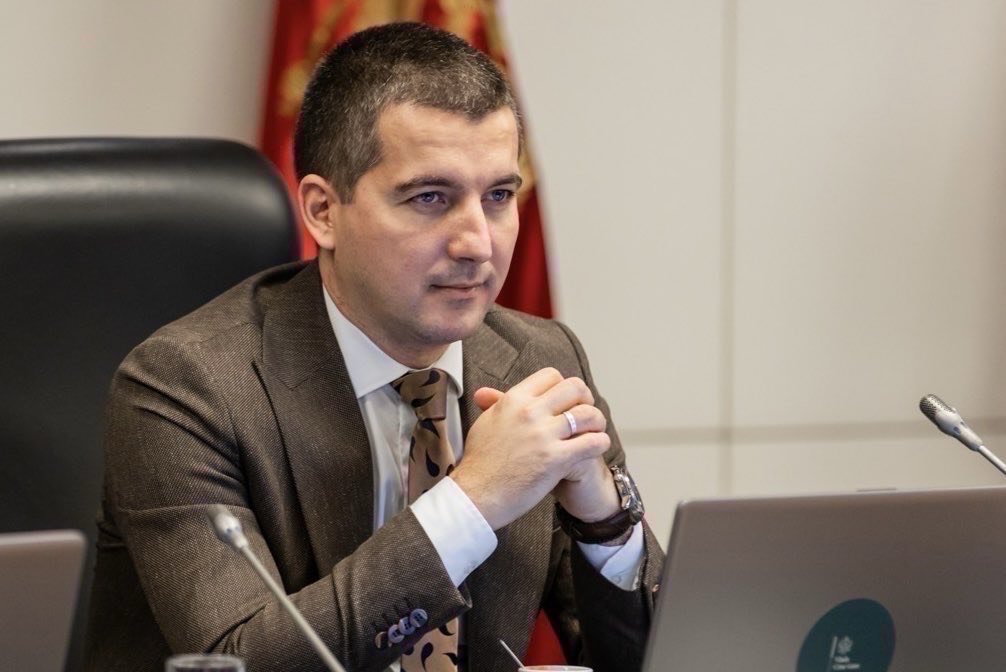In their efforts to have the entry ban on the DCG leader lifted, Milatović and Spajić contacted various authorities in Croatia. However, according to Antena M’s sources, the response was always the same: the issue is not up for discussion, and Bečić knows very well why he is on the list.
By gifting the "Josip Marković" Cultural Center to the Republic of Croatia, a building constructed with the efforts and funding of Croats from Donja Lastva and Tivat, the Montenegrin government has managed to check off just one item from a lengthy list of commitments to the official government of Zagreb. For Spajić’s cabinet, however, the hardest part is still ahead: a demanding diplomatic effort and a series of humiliations they will have to endure before they can even begin to repair the damage caused by the adoption of the Resolution on the Genocide in Jasenovac. With this resolution, Montenegro turned Croatia, once one of its strongest supporters on the path to European integration, into a blinking yellow light, a checkpoint that now slows progress and selectively lets us through.
The biggest challenge Spajić is likely to face is the potential repeal of that resolution, a move that, through proxies in Montenegro, Belgrade has carefully positioned as an obstacle on our way to Brussels. That is, of course, assuming Spajić can secure a majority in both PES and Parliament to support such a reversal. Even those with minimal political awareness understand that the aggressive media campaigns coming from outlets like Borba and In4S, as well as from quasi-political groups like the Miholjski Zbor, which are currently targeting Ervin Ibrahimović, are simply expressing in public what their political and religious leaders believe. And those leaders know full well that the Minister of Foreign Affairs was merely executing a decision made by the government.
While the public has been somewhat informed about the difficult negotiations with Croatian officials aimed at preventing Montenegro’s EU accession chapters from stalling completely by the end of the year, another, less visible diplomatic effort is underway: a behind-the-scenes attempt to have the Croatian government revoke its decision to declare Aleksa Bečić persona non grata.
Sources in both Podgorica and Zagreb confirmed to Antena M that Montenegrin leaders have repeatedly appealed to Croatia for this concession. (Unsurprisingly, Andrija Mandić, like Milan Knežević, has neither the will nor the ability to help in this regard.) President Jakov Milatović and Prime Minister Spajić have used their meetings with top Croatian officials to lobby for lifting the entry ban against the Deputy Prime Minister and leader of the Democrats.
Although they approached different people, Antena M’s sources say the answer was always the same: this is not open for discussion, and Bečić knows exactly why he is on the list.
Tomislav Sokol, a prominent Croatian MEP and one of the most knowledgeable observers of Montenegro’s political scene, recently stated on ETV that Zagreb is fully aware that "the Democrats are connected to Belgrade, and I would say to Moscow as well".
In Zagreb, the solid and trouble-free cooperation between the Democrats and the former DF parties is seen as clear evidence of shared political agendas and values. That’s why Croatian officials, according to our sources, were puzzled by the Montenegrin government’s insistence that Aleksa Bečić is somehow different and should not be grouped with "extremists like Mandić and Knežević".
At least, they were puzzled until the recent formation of the local government in Nikšić, when Marko Kovačević was elected mayor with PES’s support. According to our sources, after that, it became much clearer to both Croatian officials and analysts that the pro-European rhetoric of the Europe Now Movement has, for some time, been accompanied by close cooperation with parties that are openly pro-Russian and pro-Serbian.
It’s also becoming increasingly evident that Milatović and Spajić, both of whom are losing political strength, are preparing to form some sort of electoral alliance with Bečić in the next elections. Whether one or both of them will join forces with him remains to be seen, especially if they manage to settle their disputes by then. But this plan is practically meaningless if the DCG leader is still banned from entering Croatia.
The Croatian officials and analysts we spoke to remain baffled as to why Milatović and Spajić even believe that Zagreb would be willing to grant them such a favor.










Komentari (0)
POŠALJI KOMENTAR